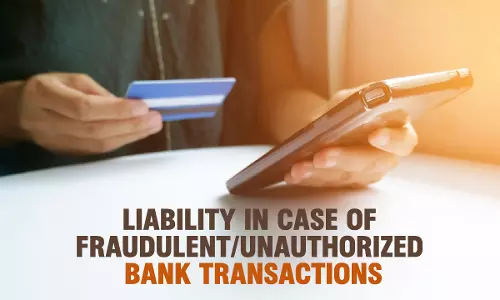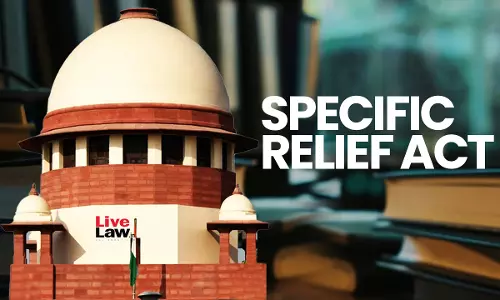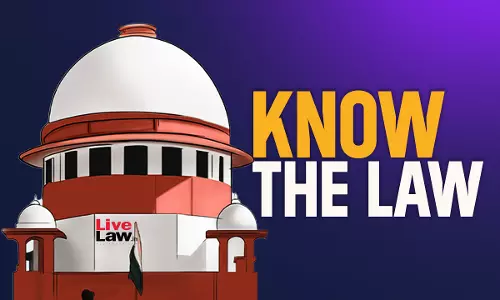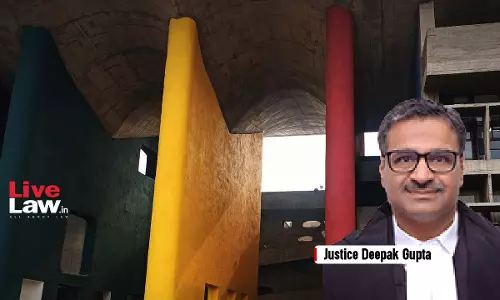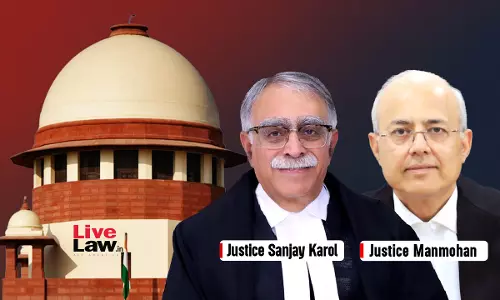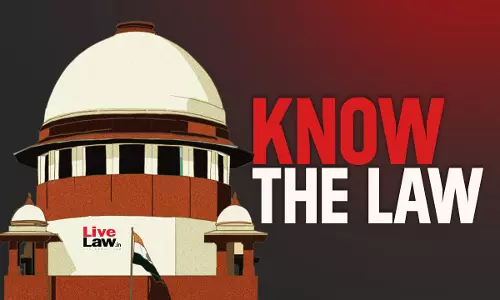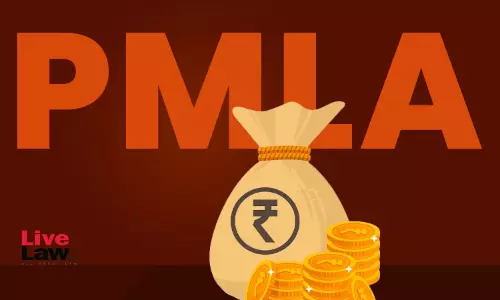Know the Law
Order XXII Rule 4 CPC | Supreme Court Explains Correct Procedure To File Applications To Substitute Legal Heirs, Set Aside Abatement & Condone Delay
The Supreme Court has issued a clarification regarding the substitution of legal heirs in ongoing litigation, addressing a frequent procedural misstep by lawyers. The Court emphasized the crucial distinction between abatement of a suit or appeal and the process of setting aside that abatement, particularly in cases where substitution applications are filed beyond the initial 90-day...
Know The Law | Banks' Liability When Customers Lose Money Due To Unauthorised Transactions
While upholding State Bank of India's liability for a fraudulent and unauthorized transaction reported in a customer's bank account, the Supreme Court recently observed that banks cannot shy away from the responsibility to safeguard their customers from unauthorized transactions reported from their accounts.The order was passed in the case of a customer who indulged in online shopping and...
Know The Law | When Can Part Performance Of Contract Be Allowed As Per Section 12(3) Specific Relief Act?
The Supreme Court ruled that part performance of the contract under Section 12(3) of the Specific Relief Act, 1963 (“SRA”) cannot be claimed when the unperformed portion is substantial and non-segregable, and the plaintiff neither relinquishes claims for the unperformed part or damages nor shows readiness to perform the contract. As per Section 12(3) of the SRA, for claiming a...
Know The Law | Why Supreme Court Frowned Upon Preferential Allotment Of Public Lands To Legislators, Civil Servants, Judges, Professionals Etc
The Supreme Court in its recent decision in State of Andhra Pradesh v. Dr Rao VBJ Chelikani , while quashing the preferential allotment of lands to the housing societies of MPs, MLAs, civil servants, Judges, defence personnel, journalists etc, dissected the important parameters in determining arbitrariness in legal challenges under Article 14. Here is a breakdown of CJI Sanjiv Khanna's...
Right Of The Victim To Get Free Copy Of The FIR Under BNSS
The Statement of Objects and Reasons of the Bharatiya Nagarik Suraksha Sanhita, 2023 (for short 'the BNSS') mentions that citizen centric approach has been adopted in that statute as it provides for supply of copy of First Information Report (FIR) to the victim. On a close scrutiny of the provision concerned, it can be found that the said statement is not justified in its entirety.Section...
Whether Local Commissioner Appointed By Court Is Witness Of Any Party? Punjab & Haryana High Court Explains
The Punjab and Haryana High Court has made it clear that Local Commissioner is not a witness of any party and the discretion lies with the Executing Court to permit or refuse to examine the Commissioner.Justice Deepak Gupta said "the Local Commissioner appointed by the Court is not a witness for any of the party. In fact, he performs his duty as an extended arm of the court and thus to all...
NDPS Act| When Can Owner Of Vehicle Used To Carry Contraband Be Arrayed As Accused? Supreme Court Explains
The Supreme Court today outlined four distinct scenarios that arise in cases involving the seizure of vehicles used to transport narcotic substances, as punishable under the Narcotic Drugs and Psychotropic Substances Act (NDPS Act).The bench comprising Justice Sanjay Karol and Justice Manmohan answered the possible fallouts of those scenarios i.e., whether there would be an interim release of...
Know The Law | Supreme Court Explains Doctrine of Relation Back In Hindu Succession & Adoption Laws
Applicable to various branches of civil law, the 'Doctrine of Relation Back' refers to a principle that creates a legal fiction where certain acts or rights are allowed to take effect retroactively from an earlier date than the actual date of occurrence. Because the rights came to be enforceable from an earlier date, thus the doctrine saves the person from the prejudice suffered between...
When Defendant Can Be Asked To Begin Evidence In Suit? Supreme Court Explains Order XVIII Rule 1 CPC
In a recent judgment, the Supreme Court explained the circumstances under which a defendant gets the right to begin in a suit hearing as per Order XVIII Rule 1 of the Civil Procedure Code.As per the CPC, the plaintiff has the right to begin. However, if the defendant admits the facts alleged by the plaintiff and argues that plaintiff is no entitled to relief due to certain additional fact or...
Navigating Intersection Of Anti-Money Laundering And Recovery Laws: The Imperative For Collaboration And Cooperation
The legislative efforts to combat money laundering activities in the country and the legislative measures to deal with the recovery of nonperforming assets in the Banking sector without the intervention of courts of law coincided in the same year with the passage of two special Acts in the year 2002.These two Acts, (Prevention of Money Laundering Act 2002 and the Securitisation and Reconstruction of Financial Assets and Enforcement of Security Interest Act 2002) though passed in the same year,...
Know The Law | When Can Sex On Promise To Marry Amount To Offence Of Rape?
Recently, the Supreme Court expressed concern over the 'worrying trend' of initiating criminal proceedings under rape charges soon after a proloned consensual relationship breaksdown.In this explainer, we will dissect the issue of (1) What is a false promise to marry and how it's different from a breach of promise to marry?. (2) When can a promise to marry be considered 'false'? and (3) How can...




